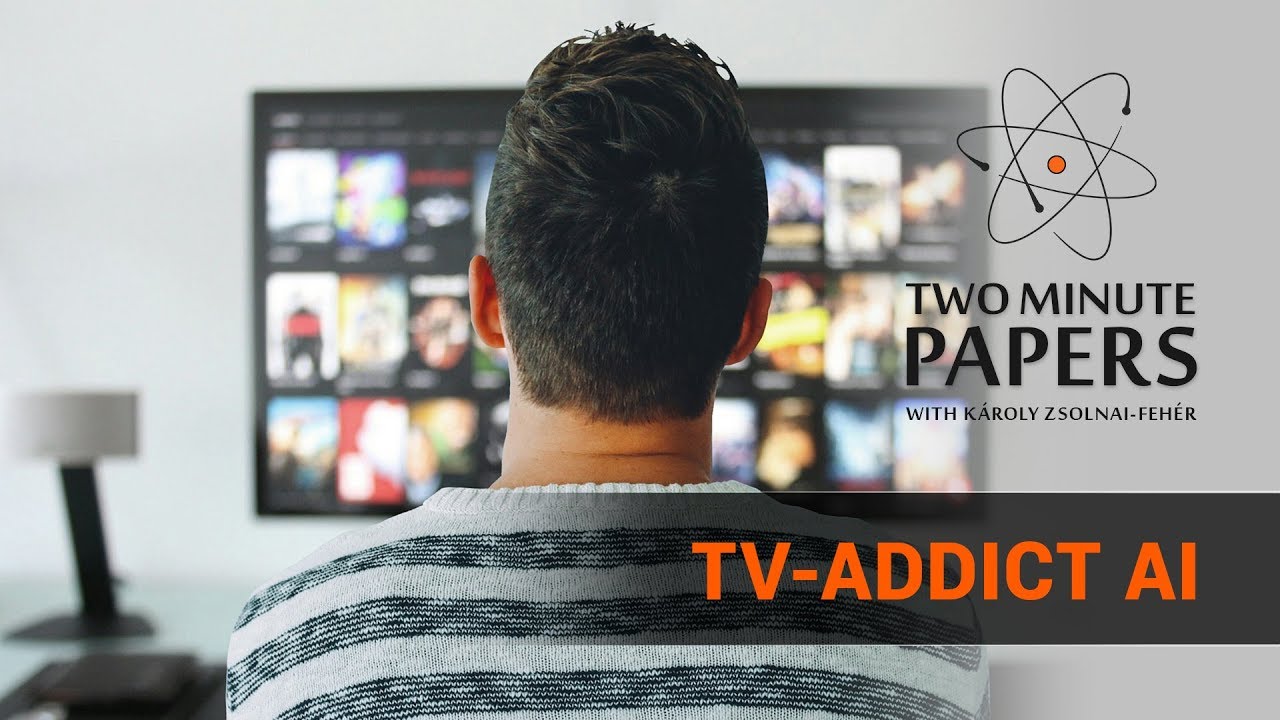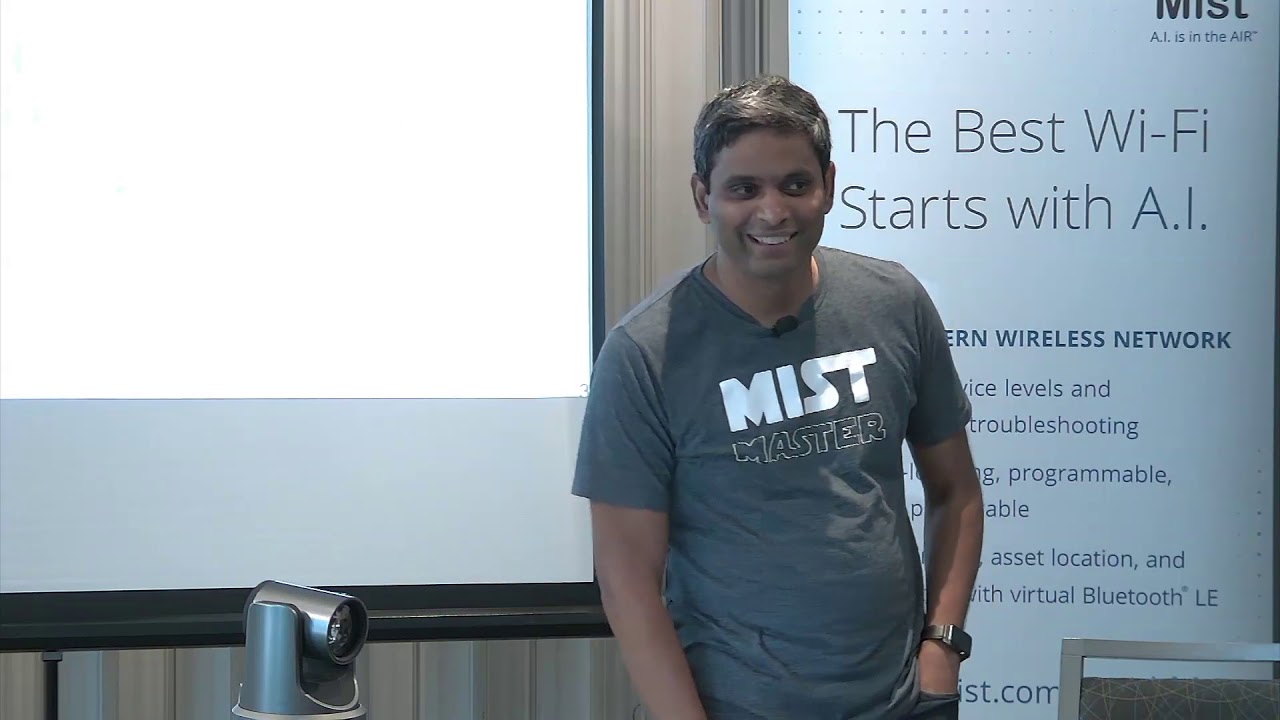Two Minute Papers
Pick up cool perks on our Patreon page:
› https://www.patreon.com/TwoMinutePapers
Crypto and PayPal links are available below. Thank you very much for your generous support!
› PayPal: https://www.paypal.me/TwoMinutePapers
› Bitcoin: 13hhmJnLEzwXgmgJN7RB6bWVdT7WkrFAHh
› Ethereum: 0x002BB163DfE89B7aD0712846F1a1E53ba6136b5A
› LTC: LM8AUh5bGcNgzq6HaV1jeaJrFvmKxxgiXg
The paper “Large-Scale Study of Curiosity-Driven Learning” is available here:
Paper – https://pathak22.github.io/large-scale-curiosity/
Blog post – https://blog.openai.com/reinforcement-learning-with-prediction-based-rewards/
We would like to thank our generous Patreon supporters who make Two Minute Papers possible:
313V, Andrew Melnychuk, Angelos Evripiotis, Anthony Vdovitchenko, Brian Gilman, Christian Ahlin, Christoph Jadanowski, Dennis Abts, Emmanuel, Eric Haddad, Eric Martel, Evan Breznyik, Geronimo Moralez, John De Witt, Kjartan Olason, Lorin Atzberger, Marten Rauschenberg, Maurits van Mastrigt, Michael Albrecht, Michael Jensen, Morten Punnerud Engelstad, Nader Shakerin, Owen Skarpness, Raul Araújo da Silva, Rob Rowe, Robin Graham, Ryan Monsurate, Shawn Azman, Steef, Steve Messina, Sunil Kim, Thomas Krcmar, Torsten Reil, Zach Boldyga.
https://www.patreon.com/TwoMinutePapers
Thumbnail background image credit: https://pixabay.com/photo-3774381/
Splash screen/thumbnail design: Felícia Fehér – http://felicia.hu
Károly Zsolnai-Fehér’s links:
Facebook: https://www.facebook.com/TwoMinutePapers/
Twitter: https://twitter.com/karoly_zsolnai
Web: https://cg.tuwien.ac.at/~zsolnai/
Source




Apologies for the delay…creating this episode has been "eventful". 🙂 This is why: https://twitter.com/karoly_zsolnai/status/1063476734962659329
It is not curious. it is simply programmed to learn new content. It's programmed to know that it can't learn new content from old content. It's only fake choice is to move to the next unknown content.This is simply what humans do to escape boredom. humans are able to choose the content they interact with. a program has no choices, no free will, no will at all. People work hard to program AI to do things like a human would. Once it completes what people have made and programmed it to do. they then humanize the AI by altering their own perception of the AI.
me: her is a good video game enjoy!!
him: bUt i lOvE tV
Attracted to a flashing scoreboard. Great. Someone get a digital napkin to wipe up its drool…
I think this ai may have adhd, feels like the most relatable ai so far.
-"What a time to be alive…"
"Yeah, I heard that"
Have it decipher hieroglyphs
when the AI will be curious about what does happen when I throw a knife to a human…
I'm definitely an ai
Wow!
A Terminator was sent from the future to kill me. Luckily, I just finished watching this episode. So I flicked on my TV and now he’s just standing there, staring in awe into the depths of the flat screen. Thank you, Two Minute Papers, you saved me and the rest of the world!
Curiosity rules.
Herro viewers this is ka rajalabadoshemawala§ah here
This is amazing work .
EA and Blizzard will not like this
I wonder if we can understand ourselves better by studying AI
If the AI is exploring the environment based on visual input, and it found a TV screen, wouldn't it spend a lot of its time trying to learn what a TV was. I.e. making sense of this image that has flashing images on it, and being continually unable to relate the visual information it was seeing to its environment. How does the AI respond to such an alien thing? What if what we're witnessing isn't 'addiction' to TV but petrifaction?
Imagine exposing a 13th century peasant to a plasma television – they'd probably be equally shocked at this weird contraption in front of them.
Ohhh maaan, this video is so short that it is almost frustrating 🙁
What a time to be Alive!
cool you gave it curiosity
now you should give it boredom so it doesn't hang in front of the television looking at random crap all day
Fascinating. I never thought about how that is essentially what drives humans to play games too. Curiosity of new regions and mechanics.
I just hope researchers solve the novel stimuli addiction problem before they upload a more powerful successor version of this type of neural network into a strong, bipedal robotic body so the robot does not develop a morbid curiosity addiction.
I need to program an AI to become addicted to working for free on my behalf.
what if you added boredom? would that not fix the staring at a screen problem?
These things are sure interesting, but scientists should also think about their responsibilities. What a time to be alive? Just wait until the applications are used to suppress us even more.
Curiosity as the only motivator is obviously dangerous in the real world, scine it can lead to immoral experiments for fun.
Lessening the reward if the ai remains inactive for too long might work against the tv addiction. I think that’s how humans deal with this issue.
Quite the mood.
Interesting, what if it played an open world game or dungeon crawler?
the AI will be so frustrated when it has to pay for additional inventory..
make the ai curious of the result of it's actions – make it "want" to do something and aim for a result – how it can change the scenery…
so that looking at the TV will eventually bore the AI.
Make the ai watch all the vsauce videos
It's interesting to look at how natural evolution sorted out this problem (mostly) in humans. Specifically, the contrasting desires for novel experiences (curiosity) and the desire to find patterns/similarities in things. If all we're getting is novel experiences with no linking factor, we get bored, but if we're not getting enough novel experiences, we similarly get bored. I know very little about programming, but I expect that the hard part about trying to implement this in an AI would be finding the right balance.
In a few years there will be a lazy and fat AI with artificial cholesterol
that will join a virtual gym and pay with bitcoin 😂😂😂 #TheCircleOfLifeIsComplete
tbh if i found that tv while playing i would sit there n just see if sumthin happens
Like if you want to become a cyborg.
what does it mean for an ai to get addicted to a game
I bet if a desire for agency was added to balance the curiosity, it would partially solve the tv addiction. I know that that's what makes me prefer games to tv.